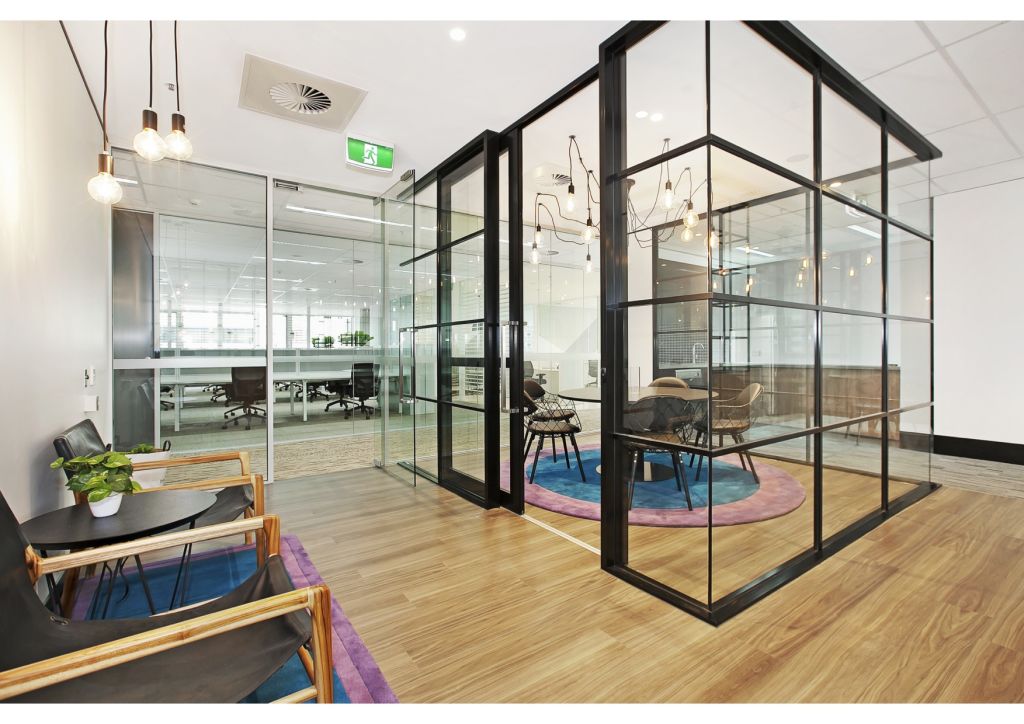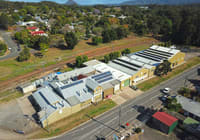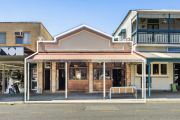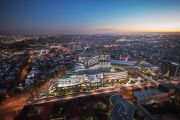
Co-working spaces enjoy 'extraordinary growth' as companies rethink the office
Co-working and flexible working spaces are enjoying time back in the sun as a result of continuing COVID-19-induced uncertainty surrounding the return to work in regular commercial offices.
With many businesses approaching their end-of-lease periods and unsure of what their future floor plan needs might be, or with workforces still reluctant to leave home, they’re increasingly turning to flexible workspace to fill their needs.
“We’re seeing a huge rise in demand,” said Jenny Folley, founder and chief executive of @WORKSPACES, which has nine co-working and private office sites around the country and planning to open many more. “Many companies are currently reluctant to sign up for contracts to lease or buy their own space, so we’re seeing quite extraordinary growth in our business.
“Employees don’t want to commute back into the cities, so they’re happy to go to sites in more suburban locations, while we have a number of very large companies now wanting to sign up for space.”
It’s a boom being experienced by many major players in the same business. At Colliers, flexible workspace specialist Sami Schiavi said many companies were now using such space to trial reducing their property footprint and adapt to agile working, with the rotation of teams.
“I think almost every occupier we are talking to at the moment is going through the same issues,” she said. “They are unsure of what the answer to the return to the office looks like in terms of staffing, so don’t know how much space they’ll need.
“With flexible workspace, however, they can reduce or expand at the drop of a hat. It very much depends on what’s happening in the economy and it’s very turbulent times.”
Yet it’s not only the variable size of the space that’s fuelling the surge, believes Brad Krauskopf, chief executive and founder of Hub Australia. It’s also about the task of luring workers back, and out of their homes, and attracting, and retaining, the best talent – especially in the times of “The Great Resignation”.
“Just offering people a physical space isn’t good enough anymore,” he said. “You’ve got to give them a reason to return and become a part of everything.
“With our spaces, as well as the diversity of different spaces, we’re also offering great experiences, with our wellness spaces and their little gyms, the relaxation spaces, and all the amenities that come with them. It’s far more than just a desk. These are workspaces with extras that people can’t create themselves.”
Colliers’ research found that the share of flexible workspaces has risen over the past two years from between 1.5 per cent and two per cent to 3.1 per cent today. Towards the end of the first quarter this year, that’s expected to balloon to closer to 4 per cent.
While Sydney and Melbourne have by far the most flexible sites – Colliers has over 80 in Sydney alone – Brisbane and the Gold Coast are expanding quickly, partly as a result of the inflow of interstate lockdown-weary migrants.
Ms Folley’s @WORKSPACES has just opened a new site in the Brisbane suburb of Milton and is about to open a second Gold Coast location, in a garden setting that she thinks will appeal to workers in the pandemic age. She’s also planning a series of other smaller office hubs throughout Australia, in addition to her five Melbourne sites and two Sydney sites.
“These will be smaller hubs in areas that people don’t have to travel far to,” she said. “They’ll have plenty of meeting spaces and also all our other facilities like the postal address, the person to answer the phone, the cleaning, the phones and internet and the ability to downsize or expand into bigger spaces.”
Melbourne-based Peri Spathotoulos, director of Paramount Finance Australia, signed up with @WORKSPACES as a transition between working from home during COVID and getting back into office space. He says his main motivation was that it was a cost-effective way of doing business, while it also offered other opportunities.
“There’s a big advantage in that you can network with other offices around you, and you can give them business and they can give you business,” he said. “There’s such a good vibe that you wouldn’t have just in your own office.
“Also, I like not having to do your own maintenance and we have a reception that’s nice for our clients and makes us look bigger than we actually are. We’re also planning to expand mid-year, so then we’ll take more space.”
Others, such as Damien van Raaphorst, associate director of acoustic specialists Resonate Consultants, with offices across Sydney, Melbourne and Adelaide, are using it as more of a stop-gap before moving into more permanent offices. “It takes a lot of time to do all your due diligence, so this was good in the meantime as a turn-key solution,” he said.
With so many employees now preferring a hybrid system between home-working and going to the office for meetings, some have also opted for co-working spaces to supplement what’s needed.
“No one knows what’s going to happen in three or six months,” said Bruce McGregor managing director of the business problem-solving company the Brooke Institute, who’s also taken space at @WORKSPACES.
Traditionally a place for start-ups, offering them meeting rooms and event spaces besides their place to work, they’re now often being joined by major corporates, advises Jim Groves, the founder of Rubberdesk, which works as a kind of Airbnb for flexible office spaces.
“We are seeing corporates probably coming to the end of their leases who are re-examining their commercial footprint and what their work is going to look like in the future,” he said.
“There’ll be a lot more collaboration enticing people to come back into offices rather than working remotely, so we’re seeing so much more interest in flexible office space.”
Yet even when – and if – the pandemic subsides, flexible space will still be as big, if not bigger, than it is now, believes Mr Krauskopf. “People are looking for new ways of working,” he said. “We’ll find it takes up a much bigger share of the market in the future.
“It’s got everything people need, from flexibility to that hospitality element – everything companies want to attract and keep great talent.”










